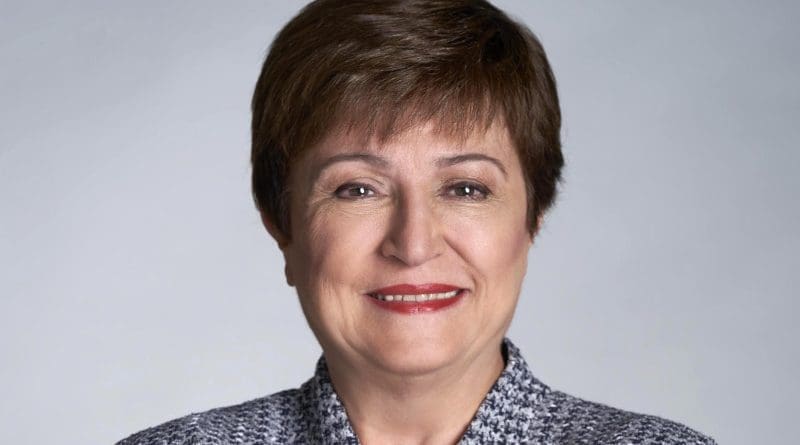Kristalina Georgieva At OENB Conference: Bretton Woods At 80 And Austria’s IMF Membership At 75 – Speech
Thank you to the Oesterreichische (“aw-ster-rye-hy-sha”) Nationalbank for inviting me to speak on this important occasion, and to Governor Holzman for organizing this conference on events with great significance for us at the IMF — the 80th anniversary of the creation of our institution and the 75th anniversary of Austria’s joining as a member and since then playing a strong and constructive role.
We owe a debt of gratitude Austria for our fruitful collaboration over the years.
The Joint Vienna Institute, a joint undertaking of the OeNB, and the Austrian Federal Ministry of Finance, and the Fund, has provided training to public sector officials from countries in Central, Eastern and Southeastern Europe, the Caucasus, and Central Asia for more than 30 years. The Institute plays a crucial role in strengthening economic policies through the training it provides and by serving as a hub for networking and peer learning among policymakers. It has also been a great platform to collaborate on capacity building with other partners such as the EBRD, the EIB, the OECD, the World Bank, the WTO, and the European Commission.
Vienna also hosts the IMF’s regional office for the Western Balkans, which allows us to maintain close engagement with countries in the region, along with donors, other international institutions, and the Austrian government, which is an important trade and development partner of the Western Balkan region.
The Vienna Initiative, born out of the global financial crisis, has been central to promoting regional financial stability.
Let me also recognize the significance of your discussions today on the past, present and future role of the IMF for global economic cooperation and stability.
As we all recall, in 1944 the IMF was forged from the ruins of two world wars. In the decades leading to our creation populism had swept over much of the globe, and the old world order was in chaos. After the Bretton Woods, the world saw dramatic increases in global integration and wellbeing, for which the IMF played a key role — by promoting the stability of the international monetary system, facilitating international trade, supporting sustainable economic growth and employment, and through all this helping to reduce poverty.
Today, however, we face many of the same challenges as we did at the time of our inception. Yet again, in Europe a military power has invaded a neighbour — and flares of regional wars add to global risks. Yet again, populism and protectionism are on the rise. On top of that, we are grappling with global mega-trends such as climate change and the demographic transition, as well as disruptive technologies such as AI and digital currencies.
So far, the global economy has proven to be remarkable resilient — thanks to the strong macroeconomic fundamentals and effective policies built over the years. I am proud the IMF has contributed to this strength.
Looking forward, we do face a choice. We can choose the path of instability and confrontation. Or we can choose the path of cooperation and shared prosperity.
At this pivotal moment in history, the IMF’s mandate is more important than ever. We stand for monetary cooperation and open trade. We stand for strong institutions and sound policies. We stand for a world of sustainable growth that creates jobs and protects the vulnerable.
But we are not standing still. Indeed, we are using the 80th anniversary to reflect on a Fund for the Future—an institution that will not only help our members withstand the many challenges in front of them but ensure they truly thrive in this increasingly complex age.
We are intensifying the focus of our surveillance on longer-term issues to help member countries build resilience in the face of potentially disruptive structural transformations. We have increased the flexibility and firepower of IMF precautionary instruments to strengthen the global financial safety net in this more shock-prone world.
We are working hard to help low-income countries build strong institutions, including by promoting central bank independence and credible macroeconomic frameworks. We are working with other international organizations and the creditor community to help countries address excessive debt burdens. And we are exploring ways to give all our members an even greater voice to ensure that the Fund remains representative of its diverse membership.
Eight decades ago, our founders chose the path of cooperation and prosperity. I am confident we will follow that path again, together.

